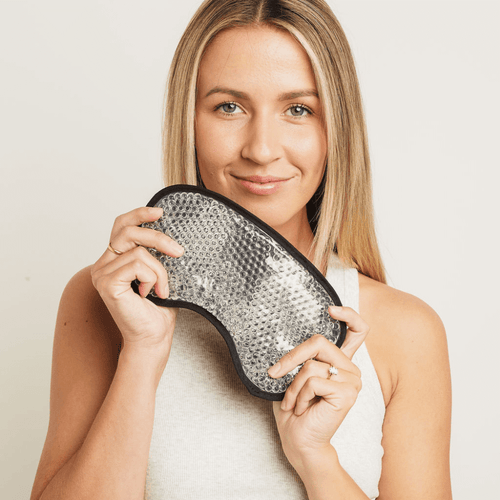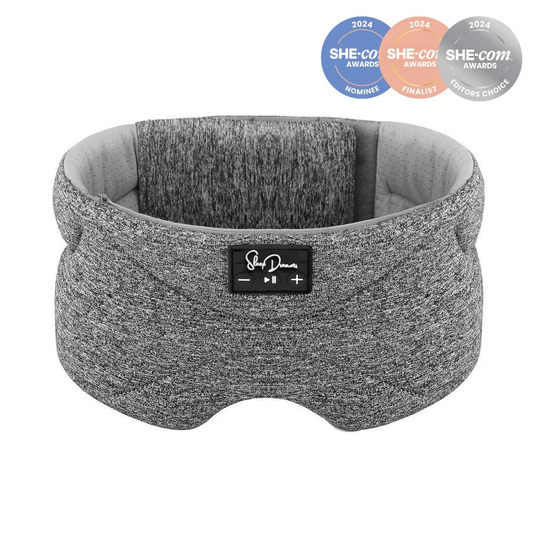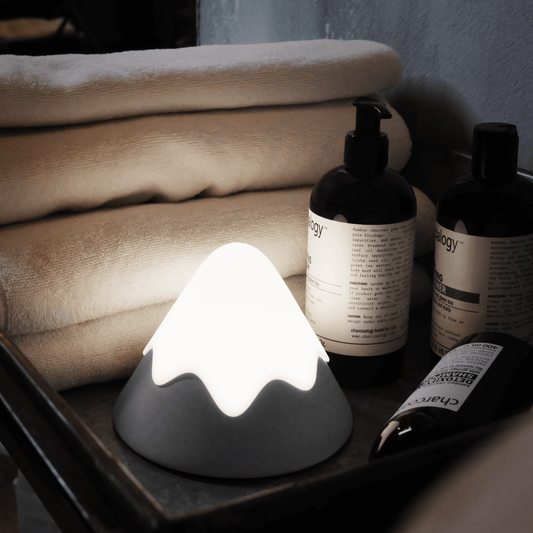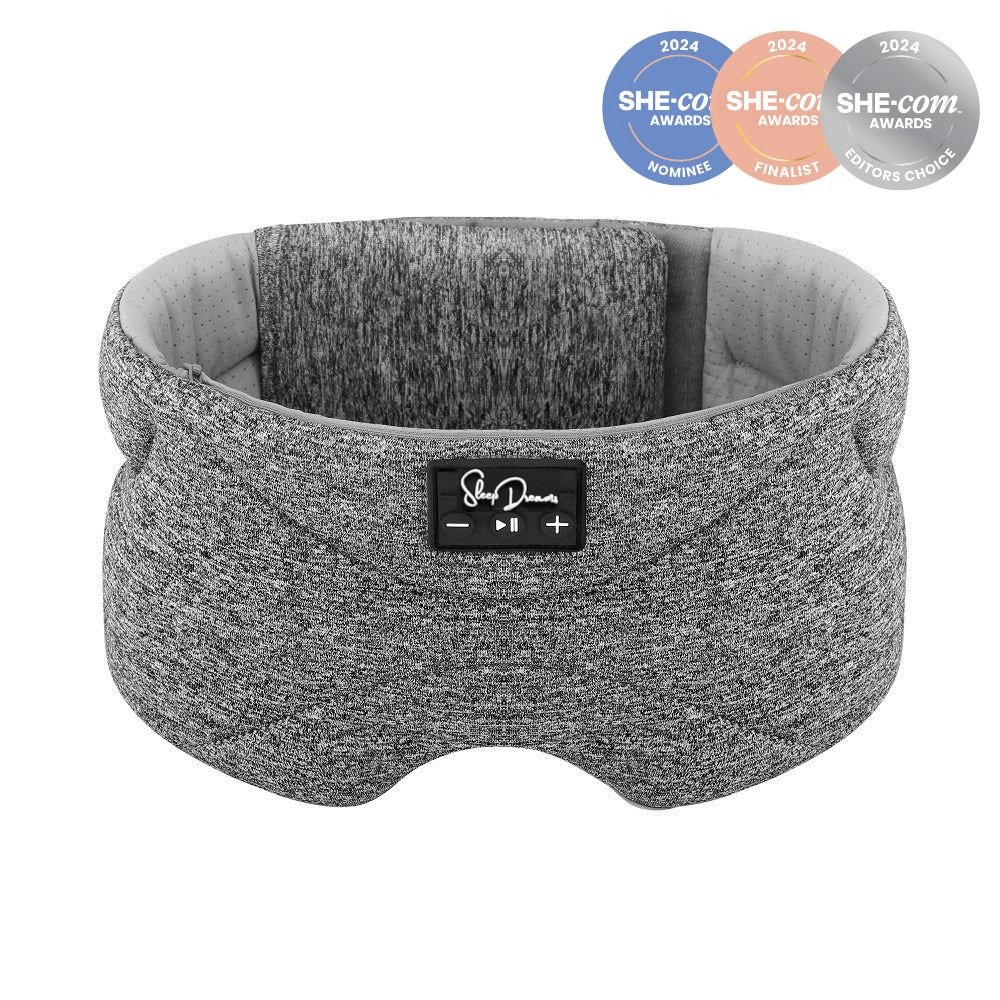About 40% of men and 30% of women experience mild snoring, which can disrupt sleep throughout the night. A well-chosen mouth guard can offer significant relief. This guide explores what to look for in a mouth guard, focusing on its features, materials, durability, and user reviews.

Features of a Quality Mouth Guard
A high-quality mouth guard should be adaptable to the unique structure of your mouth. The 'boil and bite' process involves softening the mouth guard in hot water and biting into it to create a mold of your teeth. This ensures a custom fit, enhancing comfort and the effectiveness in preventing snoring. It's the most common way that a mouth guard can be made unique to you.
Key Features to Consider:
-
Custom Fit & Adjustability: Ensure the mouth guard fits snugly around your teeth, providing maximum comfort and effectiveness. The 'boil and bite' method is a popular option for achieving this custom fit. Some mouth guards come with adjustable features to help fine-tune the fit even further. This is particularly beneficial for people who may experience changes in their bite or dental structure over time.
-
Materials, Comfort & Breathability: The material of the mouth guard plays a significant role in its comfort, safety, and effectiveness. A good mouth guard should allow you to breathe easily while wearing it.
-
Durability & Ease of Cleaning: When investing in a mouth guard, you want to ensure it lasts for a considerable period. Durability is influenced by the quality of the materials and the frequency of use. High-quality mouth guards can last anywhere from six months to a year with proper care. Hygiene is crucial, so opt for a mouth guard that is easy to clean. Some are dishwasher-safe, while others come with special cleaning solutions or instructions.
- User Reviews: User reviews are invaluable when choosing a mouth guard. They provide real-world insights into the product's performance, comfort, and durability. Look for reviews that mention the ease of the fitting process, long-term comfort, and effectiveness in reducing snoring. Pay attention to any recurring issues mentioned by multiple users, such as discomfort or difficulty in maintaining the mouth guard.
1. Custom Fit & Adjustability
Ensuring a mouth guard fits snugly around your teeth is crucial for both comfort and effectiveness. A custom fit reduces movement during sleep, which can prevent snoring more efficiently and make the mouth guard more comfortable to wear. One of the most popular and accessible methods to achieve a custom fit is the 'boil and bite' process.
- Boil and Bite: The 'boil and bite' method is a popular option. By heating the mouth guard in hot water and then biting into it, you can create a mould that fits the unique shape of your teeth. This ensures a comfortable and effective fit. Sometimes, repeating this process two or three times can help achieve the preferred fit, allowing for minor adjustments and improvements in the mould each time.
- Adjustable Components: Some mouth guards come with small screws or other adjustable features that allow you to fine-tune the fit and jaw positioning. This can be particularly beneficial for people with unique dental structures or those who experience changes over time.
Benefits of a Custom Fit
- Comfort: A mouth guard that fits well is more comfortable to wear, increasing the likelihood of consistent use. Comfort is crucial for uninterrupted sleep.
- Effectiveness: A custom-fit mouth guard stays in place throughout the night, which is essential for preventing snoring. It ensures that your jaw is held in the optimal position to keep airways open.
- Reduced Irritation: Poorly fitting mouth guards can cause irritation to the gums and soft tissues of the mouth. A custom fit minimizes these risks, reducing the likelihood of sores or discomfort.
- Enhanced Durability: Mouth guards that fit well are less likely to be damaged by grinding or excessive movement, potentially increasing their lifespan.

2. Materials, Comfort & Breathability
The materials of a mouth guard are critical for both comfort and safety. Quality mouth guards are typically made from medical-grade silicone or copolymer plastics, which are durable and free from harmful chemicals. It's essential to ensure that the mouth guard you choose is approved by the Therapeutic Goods Administration (TGA) in Australia, confirming its safety and effectiveness.
Important Considerations:
- Softness: The material should be soft enough to provide comfort yet durable enough to withstand regular use. If buying online, this can be hard to test, so check reviews to see if others have shared their experiences regarding the softness and comfort of the mouth guard.
- Hypoallergenic: You may need to choose a mouth guard that is suitable for users with sensitive skin or allergies to avoid irritation or allergic reactions. To know if a mouth guard is hypoallergenic, check for labels or descriptions that specifically state "hypoallergenic" and review the materials used, such as medical-grade silicone or certain copolymer plastics.
- Breathability: A mouth guard should allow for adequate airflow, ensuring you can breathe comfortably throughout the night. Look for designs with air channels that facilitate airflow. Check user reviews to see if others have reported any issues with breathing while wearing the mouth guard.
- TGA Approved: Look for mouth guards that have been approved by the TGA. This approval indicates that the product meets stringent safety and quality standards, providing you with additional peace of mind.
Popular Materials:
- Medical-Grade Silicone: Known for its durability, flexibility, and hypoallergenic properties, making it a comfortable and safe choice for most users.
- Copolymer Plastics: These are durable and provide a snug fit while being free from harmful chemicals. They offer a balance of comfort and strength, ensuring the mouth guard maintains its shape over time.
By choosing a mouth guard made from these high-quality materials and ensuring it is TGA approved, you can be confident in its safety, comfort, and effectiveness in reducing snoring.
Managing Excessive Salivation with Mouth Guards
Excessive salivation, or drooling, is a common issue for some people when they first start using a mouth guard. This occurs because the mouth guard is a foreign object in the mouth, stimulating the salivary glands to produce more saliva. The body interprets the mouth guard as food, triggering this natural response. However, there are ways to manage and reduce excessive salivation by focusing on the fit, material, and design of the mouth guard.
Key Factors and Solutions:
-
Fit and Comfort: Ensuring the mouth guard fits well and feels comfortable is crucial. A custom-fit mouth guard, such as those made with the 'boil and bite' method, can significantly reduce discomfort and minimise salivation. The better the fit, the less likely it is to stimulate excessive saliva production.
-
Material: The material and thickness of the mouth guard can influence salivation. Opt for mouth guards made from medical-grade silicone or copolymer plastics, which are designed to be comfortable and less intrusive. These materials are less likely to trigger the body’s natural response to a foreign object in the mouth.
-
Thin Profile: Choose a mouth guard with a thin profile. Thinner mouth guards are less intrusive, reducing the stimulus for excessive saliva production. A thinner design can help lessen the sensation of having a foreign object in the mouth, thereby decreasing salivation.
-
Acclimatisation: Give your body time to adjust to the mouth guard. Salivation often decreases as you become more accustomed to wearing it. Over time, the mouth will recognise the guard as a non-food item, and salivation should reduce.
Trend of Excessive Salivation Issues with Mouth Guard Use Over Time
The graph below illustrates the trend of excessive salivation issues experienced by users when starting to use a mouth guard. Initially, a high percentage of users report excessive salivation in the first week. However, as users continue to wear the mouth guard over time, the percentage of users experiencing this issue significantly decreases. By the six-month mark, only a minimal percentage of users report excessive salivation, indicating that most users' bodies adapt to the mouth guard, reducing this side effect over time.
While there isn't a specific feature that completely stops excessive salivation, selecting a well-fitting, comfortable, and thin-design mouth guard can significantly help. If excessive salivation persists, consulting a dental or sleep professional may provide additional solutions and adjustments.
3. Durability and Maintenance
The longevity of a mouth guard depends on its material and the maintenance it receives. While over-the-counter mouth guards may need replacing every few months, custom-made options can last up to a couple of years with proper care. Durability is influenced by the quality of the materials and the frequency of use. High-quality mouth guards can last anywhere from six months to a year with proper care. Hygiene is crucial, so opt for a mouth guard that is easy to clean. Some are dishwasher-safe, while others come with special cleaning solutions or instructions.
Tips for Maintenance and Enhancing Durability:
- Regular Cleaning: Clean your mouth guard daily to prevent the buildup of bacteria and plaque. Use a toothbrush and mouthwash or a specialised cleaner. For some models, you can also use a dishwasher if the manufacturer specifies it as safe.
- Proper Storage: Store your mouth guard in a ventilated case to keep it dry and prevent bacterial growth. A well-ventilated case ensures that the mouth guard dries out completely, reducing the risk of mould and mildew.
- Avoid Heat Exposure: Keep your mouth guard away from high temperatures to prevent warping or degradation of the material. Avoid leaving it in direct sunlight, hot cars, or near any heat sources.
- Inspect Regularly: Check your mouth guard periodically for signs of wear and tear. Replace it if you notice any cracks, tears, or changes in fit.
- Follow Manufacturer’s Instructions: Adhere to any specific cleaning and care guidelines provided by the manufacturer to ensure the longevity of your mouth guard.
By following these maintenance tips and choosing a mouth guard made from high-quality materials, you can ensure its longevity and effectiveness in reducing snoring. Proper care and storage are key to maximising the lifespan of your mouth guard.
4. User Reviews and Experiences
User reviews can provide invaluable insights into the benefits and drawbacks of different mouth guards. It's important to remember that mouth guards are a very personal product, and what works well for one person might not work for another. Sometimes, it's not that the product doesn't work; it's just not the right one for you. It’s expected that people may need to try 2 or 3 different mouth guards before finding the right fit for their mouth. By using reviews, you can gain an understanding of how a product worked for others, but ultimately, it’s something you have to try out for yourself.
What to Consider:
- Variety of Feedback: Search for common patterns in feedback across different platforms. Consistent comments about comfort, effectiveness, and durability can provide a reliable picture of what to expect.
- Personal Experiences: Note specific mentions of comfort, fit, and any side effects. Reviews that detail the fitting process and long-term use can be particularly useful.
- Trial and Error: Recognise that finding the right mouth guard might require trying a few different options. Use reviews to guide your choices and set realistic expectations.
- Effectiveness in Reducing Snoring: Look for reviews that specifically mention improvements in snoring and sleep quality. This can give you an idea of how effective the mouth guard might be for you.
By considering user reviews and understanding that finding the perfect mouth guard is often a process of trial and error, you can make a more informed decision and increase your chances of selecting a mouth guard that meets your needs.
Selecting the right mouth guard is crucial for improving sleep quality and reducing snoring. Consider the features, materials, durability, and user reviews carefully to choose a product that best fits your needs. Always consult with a dental or sleep professional to ensure the mouth guard you select is appropriate for your health and lifestyle.





















